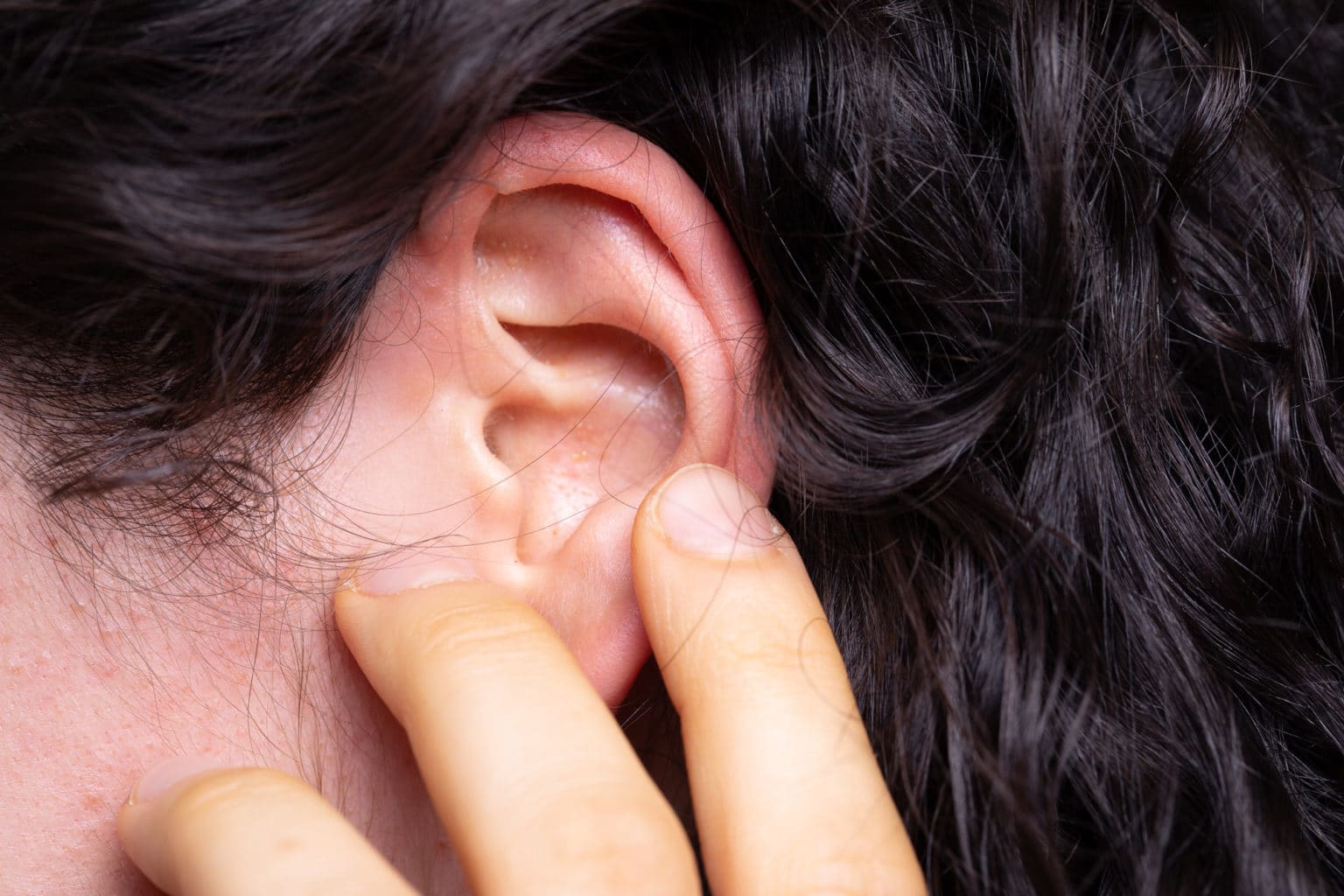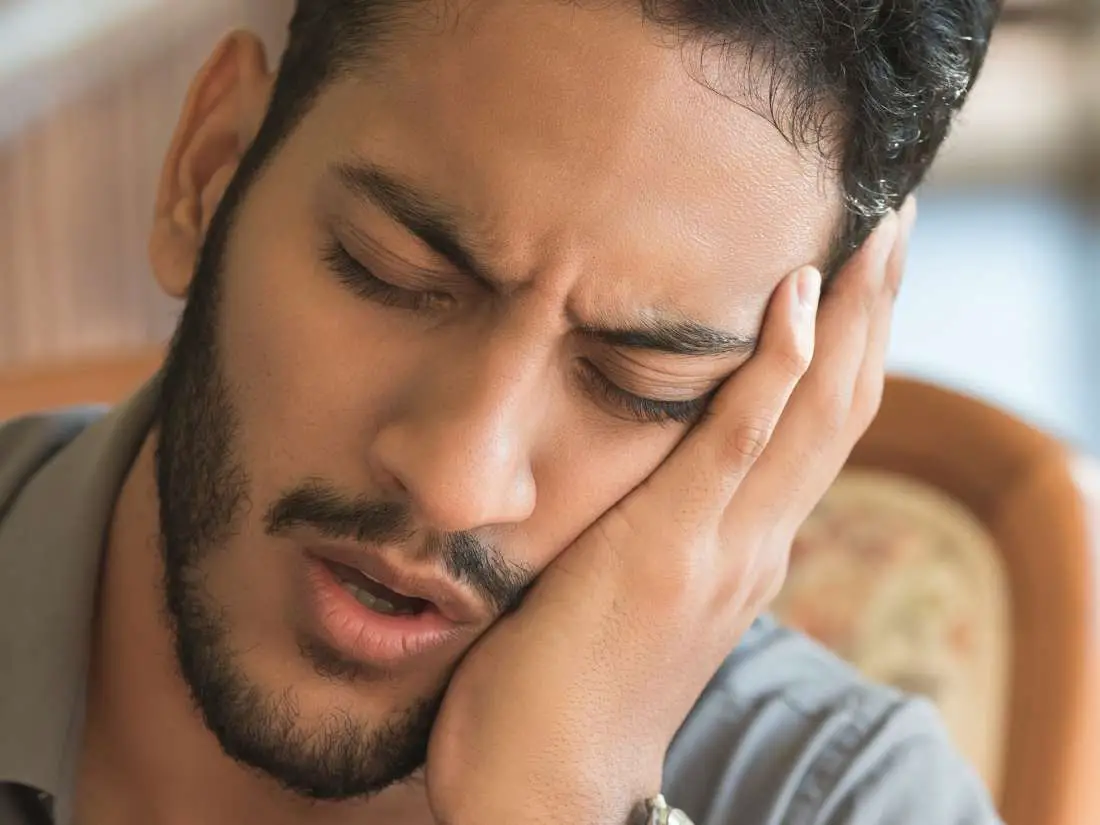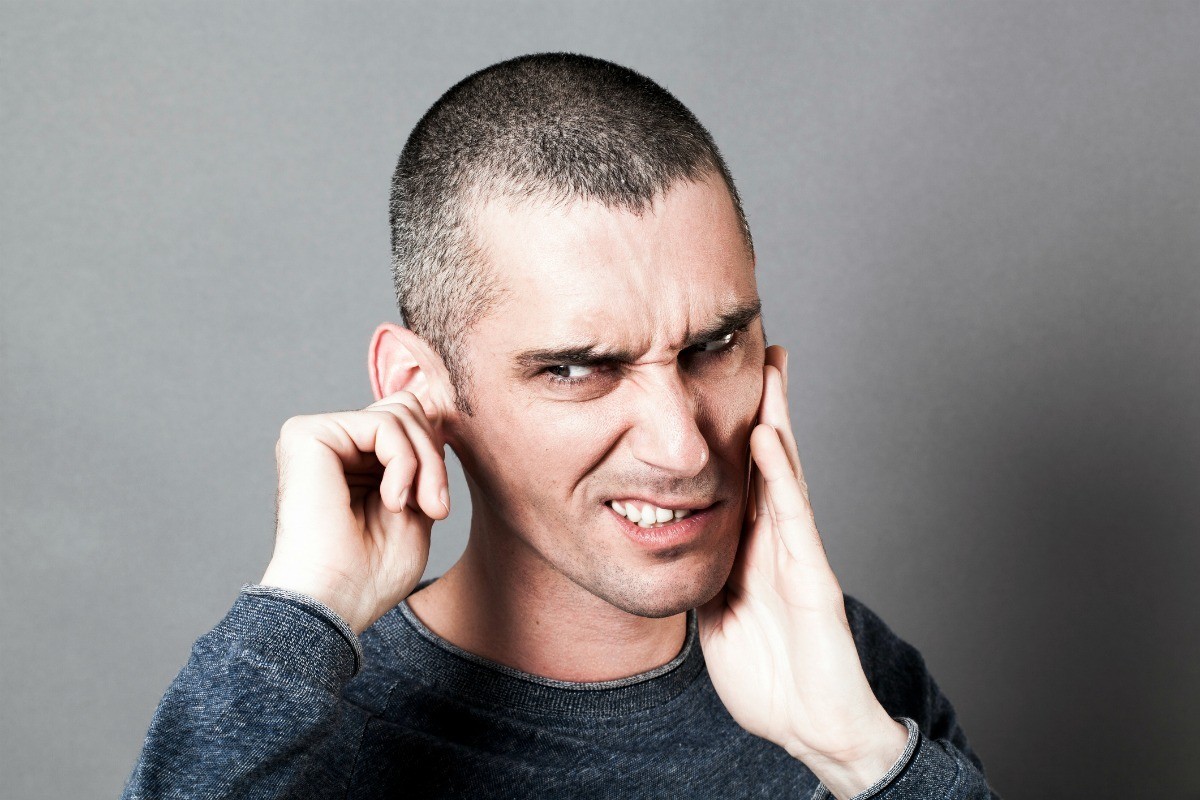Ever experienced a twinge of discomfort under your ear after consuming your favorite beverage? Well, you’re not alone. Alcohol consumption is commonly associated with discomfort around the ear and neck, often resolving on its own, but not always.
But do you have any cause for concern? Keep reading to find out as we reveal the truth behind this mystery.
Table of Contents
Toggle5 Symptoms of Pain Under Ears After Alcohol

The pain and discomfort experienced after alcohol consumption encompasses a range of physical sensations that differ from person to person. Here are a few ways your ear discomfort may manifest:
1. Burning Sensation
Some individuals might describe the pain as a burning or stinging sensation in or around the ears.
2. Pressure or Fullness
You may get the sensation of tightness or high tension (as if it is being filled with fluid beyond capacity), as if your ear might explode.
3. Aching or Throbbing
Commonly, people experience a rhythmic, beating sensation (like you can feel your pulse in your ear).
4. Sharp Pain
Rarely, it may manifest as a stabbing or even tingling sharp pain.
5. Warmth
Occasionally, regular drinkers might feel some heat in the back and inside of their ears.
6. Tenderness
Frequently touching or pressing your ear can trigger pain.
7. Itching
While not always described as pain, some individuals might experience itching or irritation in the ears, which they might associate with alcohol consumption.
Please note that the location of the pain is not always fixed and, in many cases, might not even originate in the ears. Common sites of this pain besides the ear include the neck, throat, and jaw.
Unraveling the Cause
There are several possibilities why this could happen. The most plausible explanation is that alcohol triggers your body to release certain substances (called histamines, prostaglandins, and substance p), which can either directly cause pain or heighten your body’s sensitivity toward it – so you feel it with more intensity.
Moreover, alcohol also stimulates the release of other chemicals that causes your body to increase blood flow. Increased blood flow can have the following consequences:
- Increased Sensitivity
- Warmth
- Redness
- Swelling
- Pulsation
Alcohol can cause the salivary glands beneath your ears to swell. This can cause the area under your ears to feel tender, a feeling that may extend to the jaw and neck.
Additionally, alcohol has the potential to alter the composition of your body fluids, including that in your ear. This condition is termed an “alcohol-induced vestibular disorder”. This can present as pain under your ears as well.
Should I be Concerned?

Unusual pain of low to mild intensity is typically not a severe issue. However, if you experience moderate to high pain, this could indicate an underlying disease that may need prompt medical attention. The pain is usually a sign of alcoholic intolerance and is okay if the symptoms are mild, particularly if you are not accustomed to drinking.
However, two diseases present with a similar picture of ear discomfort after alcohol consumption, which we will briefly discuss:
Hodgkins Lymphoma
This is a disease of your lymphatic system that is linked with alcohol intolerance. These are the symptoms to look out for to make an association:
- Enlarged lymph nodes (nodular masses, check your neck, armpits, and groin)
- Fever
- Night sweats
- Fatigue
- Weight loss (If your old clothes are loose)
- Itching
Carcinoid Syndrome
A disease characterized by abnormal cell growth inside your body, which throws your body out of balance with the release of different chemicals.
Symptoms to look out for in this disease include:
- Flushing (sudden reddening of the skin, especially after alcohol consumption)
- Diarrhea
- Abdominal pain
- Wheezing
- Heart palpitations
- Blood pressure changes
Contact a medical professional immediately if you observe any of these symptoms.
Preventative Measures
Here are some tips you could follow to protect yourself from this.
1. Stay Hydrated
Drinking enough water can neutralize the effect of alcohol – alcohol can cause dehydration which can manifest as pain under the ears.
2. Limit Alcohol Intake
If you’ve already experienced episodes of pain following alcohol consumption, then it would be better if you decreased your alcohol intake or stopped it altogether for some time.
3. Consume Light Drinks
You could also opt for less potent drinks like light beers and cocktails, which have low ABV (alcohol by volume). This can allow you to drink more while limiting the alcohol in your body.
4. Have a Meal and Avoid Drinking Empty Stomach
Eating right before you drink is an efficient way of controlling alcohol in your body. The food in your stomach can limit the uptake of alcohol in your body, so even if you drink more, you will feel limited effects from the drink. Similarly, drinking on an empty stomach will have an exaggerated impact, so avoid that.
5. Reduce Caffeine
Coffee can sometimes exacerbate issues related to alcohol consumption, so avoid taking it in the same time frame as your drinking session.
6. Check for Allergic Reaction
The pain you experience after alcohol consumption might be attributed to an allergy attack. Search for other symptoms to see if you may be allergic to alcohol. Look for itchy or watery eyes, shortness of breath, rash or hives, swelling, and throat irritation.
7. Cease Drinking if Serious
If nothing works, then it might be time for you to give up on drinking. Listen to your body; if it cannot handle it, do not force it to. Neglecting your health continuously can be extremely harmful in the long run.
Can Alcohol Affect Hearing?
A study in South Korea linked hazardous drinking to a strong association with hearing impairment, especially in men. Heavy drinking is associated with detrimental effects on the infrastructure of your ear, particularly the minuscule hair in your ear responsible for conducting sound waves.
Conclusion
The pain under your ears can occasionally be brought on by excessive alcohol consumption, but it is typically mild and goes away on its own. However, severe or recurrent pain may indicate a more serious underlying cause. According to the guidelines, it is crucial to evaluate pain after alcohol consumption.
By implementing healthy drinking habits and regular checks and balances, you can avoid the potentially harmful effects of alcohol.
Please note that this blog is for educational purposes only and should not be used as a source of medical advice or diagnosis.

I am a passionate beer connoisseur with a deep appreciation for the art and science of brewing. With years of experience tasting and evaluating various beers, I love to share my opinions and insights with others and I am always eager to engage in lively discussions about my favorite beverage.
















